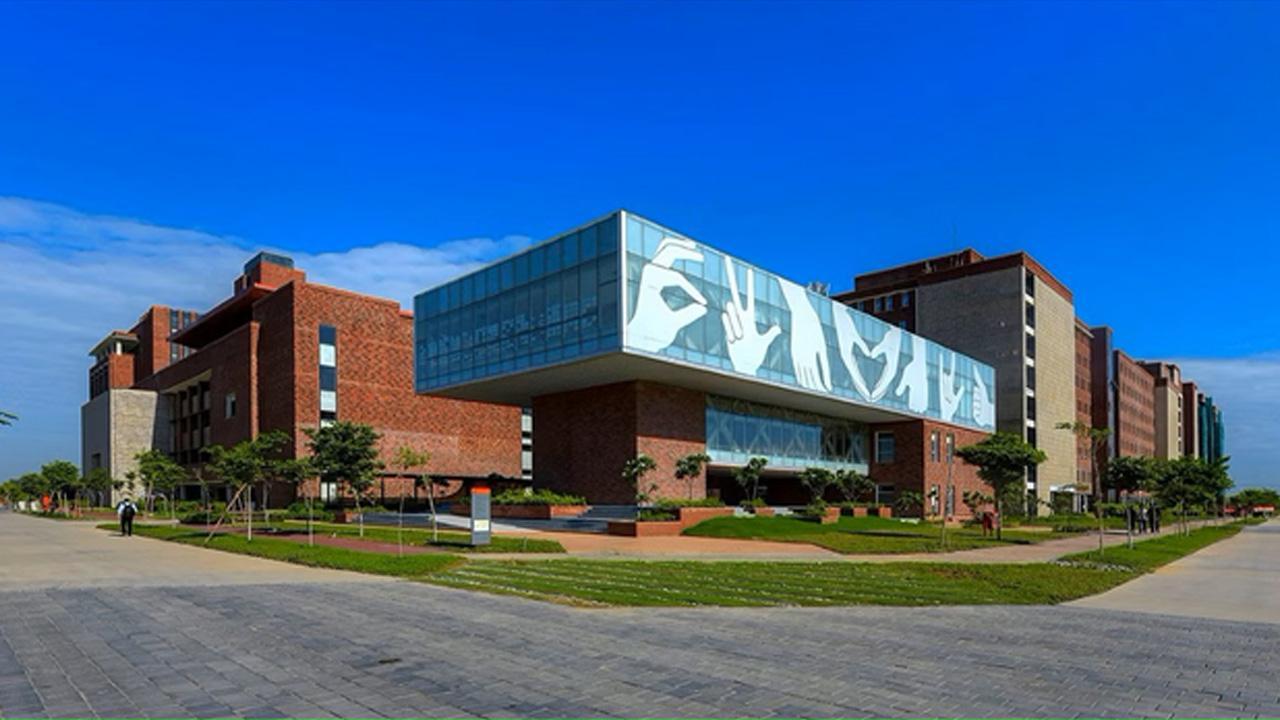The pandemic brought about a significant shift in the traditional education landscape, forcing universities to rapidly transform their teaching methods and embrace digital learning.

Ashoka University
The global Covid-19 pandemic has had far-reaching consequences, impacting almost every sector and institutions across the globe. Universities in India, like their counterparts worldwide, have faced numerous challenges in adapting to the new normal. As the country gradually recovers from the crisis, it is essential to understand and overcome the post covid challenges faced by the Indian education sector. Ashoka University founders discuss the post covid challenges and how institutions are navigating through them.
ADVERTISEMENT
The Unforeseen Challenges:
The pandemic brought about a significant shift in the traditional education landscape, forcing universities to rapidly transform their teaching methods and embrace digital learning. To deliver quality education via virtual platforms, universities had to change their teaching strategies. Online education emerged as a useful resource for determined students in areas with limited access to credible colleges. While online education gained prominence during the pandemic, millions of students from economically disadvantaged backgrounds faced hurdles in accessing the necessary tools and resources. Addressing this disparity requires targeted interventions, such as providing affordable internet connectivity, distributing devices to students in need and developing digital infrastructure in remote areas.
Ashoka University founders, emphasize the scale of the challenge. Vineet Gupta Ashoka University founder states, “The pandemic accelerated the need for digital transformation in higher education. We had to reinvent the way we deliver education, not just replicating physical classrooms online but leveraging technology and internet connectivity to enhance student engagement.”
It is also witnessed that although online platforms offer a complementary and alternative form of education, they are not meant to replace traditional colleges or universities. The urge to return to the physical classroom setting is on the rise, implying that online learning alone is unlikely to last despite how convenient learning from home continues to be.
“Classrooms include beneficial elements including face-to-face interactions, collaborative learning and immediate faculty assistance. Therefore, it is clear that traditional classrooms will continue to exist alongside continued online learning opportunities. However, online education has becoming more popular, especially for exam preparation,” adds the Ashoka Founder.
Learning Loss and Remediation:
Extended school closures and the shift to online learning have resulted in significant learning loss for students across India. The absence of regular classroom interactions and the challenges of remote learning have impacted students' academic progress, particularly among vulnerable groups. Vineet Gupta says, “As per my observations, students' attention spans appear to have significantly diminished since the pandemic, making it difficult for them to focus throughout 40-minute lectures. It appears that college-bound students are showing less intellectual and emotional development, maybe as a result of the major disruption to their education during the past two years.”
The pandemic also took an emotional toll on students due to the sudden shift to remote learning, coupled with the isolation and anxiety. Pranav Gupta of Ashoka University affirms, “The past two years highlighted the need for holistic well-being in education. We recognized the importance of mental health support and realized that students need to engage with each other and seek guidance. It is crucial to build resilience not just academically but also emotionally.”
Adapting to Changing Needs:
The sudden transition to online teaching methods highlighted the need for institutions to effectively integrate both in-person and online components as they transition to hybrid learning. To improve online learning, collaboration and communication, technology infrastructure and digital tools must be improved. Many educators faced difficulties in adapting to the online learning environment, including technical challenges, pedagogical shifts and effective use of digital tools.
Pranav Gupta states, “Faced with the challenges of distant and hybrid learning, institutions and faculty are devising novel approaches to keep students interested and motivated in their studies. Staff members have had a difficult time getting used to working offline once more, but we are working to get systems and operations back up and running. There was a break in faculty recruitment and other operations, but now everything is slowly coming back together. When it comes to institutional growth resuming its normal course, we are beginning to see some improvement.”
The Road Ahead:
Higher educational institutions are embracing this opportunity to reimagine education and build a more resilient and inclusive education system. Ashoka University Founders share their vision, of how these changing times have accelerated the pace of change, forcing us to question traditional models of education. “Ashoka University will continue to lead the way, embracing innovative pedagogies, leveraging technology, and fostering a culture of interdisciplinary learning while nurturing critical thinking to prepare our students for a rapidly evolving world,” addresses one of the Ashoka University founders Vineet Gupta.
Pranav Gupta adds, “The challenges posed by the pandemic have reaffirmed the value of liberal arts education. We remain steadfast in our mission to cultivate well-rounded individuals who can tackle complex global challenges with empathy, innovation, and intellectual rigor.”
 Subscribe today by clicking the link and stay updated with the latest news!" Click here!
Subscribe today by clicking the link and stay updated with the latest news!" Click here!







